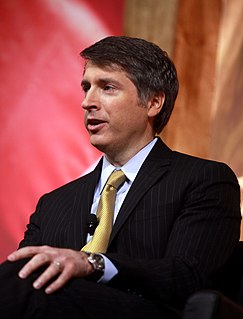A Quote by David Harsanyi
The crusade to convince us that global warming can only be dealt with by wealth destruction and higher energy prices began with an effort to 'raise awareness,' which turned into some delicate nanny-state prodding before efforts to artificially inflate prices.
Related Quotes
The horn of dilemma of energy politics is what really drives concern about this energy in this country, at the gut level for most people, is high gas prices. And if you really want to fight global warming and try to reduce our carbon emissions, the cleanest, easiest, most rational way to do it would to make the price of gas even higher through very stiff gas prices.
[The masses] ... must turn their hopes toward a miracle. In the depths of their despair reason cannot be believed, truth must be false, and lies must be truth. "Higher bread prices," "lower bread prices," "unchanged bread prices" have all failed. The only hope lies in a kind of bread price which is none of these, which nobody has ever seen before, and which belies the evidence of one's reason.
Though the two issues may seem utterly unrelated, they do have this in common - both health care and higher education are realms of American life in which government has undermined the operation of market forces and caused artificially high prices. These are two arenas in which the Democrats now propose to do exactly the wrong thing. Their reform reinforces old errors and will infinitely compound the problem of rising prices.
In the richest country in the history of the world, this Obama economy has crushed the middle class. Family income has fallen by $4,000, but health insurance premiums are higher, food prices are higher, utility bills are higher, and gasoline prices have doubled. Today more Americans wake up in poverty than ever before.
There is no such thing as agflation. Rising commodity prices, or increases in any prices, do not cause inflation. Inflation is what causes prices to rise. Of course, in market economies, prices for individual goods and services rise and fall based on changes in supply and demand, but it is only through inflation that prices rise in aggregate.
Global warming is not only the number one environmental challenge we face today, but one of the most important issues facing all of humanity... We all have to do our part to raise awareness about global warming and the problems we as a people face in promoting a sustainable environmental future for our planet.

































